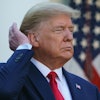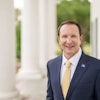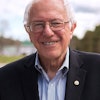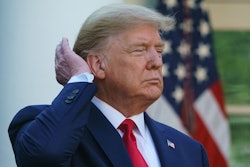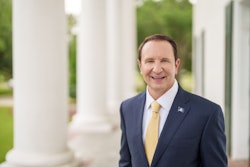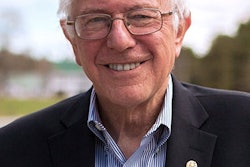Over the last two weeks, the U.S. House of Representatives has held public, televised hearings on the events of January 6, sharing the evidence and testimony they have collected to prove that former President Donald Trump deliberately stoked the flames of a violent insurrection.
But who is watching these hearings, and will they even make a difference in the course of American history? Dr. Ravi K. Perry, chair and professor of the department of political science at Howard University.
Dr. Ravi K. Perry, chair and professor of the department of political science at Howard University.
“I don’t think anyone’s watching,” said Dr. Ravi K. Perry, chair and professor of the department of political science at Howard University. “For most people, the audience really is cable news audience that do not watch Fox [News], and I think that’s in general the best you can hope for.”
On the first night of broadcast, when the hearings aired during primetime, 20 million people tuned in to watch the proceedings, according to Nielsen ratings. That amount is akin to the viewing audience for the Macy’s Day Thanksgiving Parade, but less than the numbers for presidential debates or even the State of the Union address. As the hearings moved to the daytime hours on Monday and Thursday of the following week, viewing numbers dropped by half.
Dr. Shaun Harper, a professor at the University of Southern California, said this decline might be because the hearings feel largely “performative.”
“I do not expect anywhere close to the level of accountability that this attack on our democracy deserves. I certainly do not believe there will be any serious consequences for President Trump,” said Harper. “Because of this, I do not know many friends and colleagues who are wasting their time watching them.”
The hearings have, for the most part, confirmed what was already known, said Harper. But scholars agree that these hearings are, in essence, attempting to make it clear that Trump should be ineligible to run for president in 2024, which Trump has hinted he aims to do.
Amos Jones, a civil rights lawyer in D.C., noted that these hearings are not trials with criminal claims, and added that no tangible results will likely come from them.
“The purpose of these hearings is clearly to somehow make President Trump a neutralized figure for future office,” said Jones, who also teaches media law. “But it’s difficult to see where this could lead to a barring. Just like Margorie Taylor Greene, he has a clear path to the ballot in 2024. He will be challenged, but as the former president, he has a lot of authority still within the Republican party and influence there.”
Ultimately, whether Trump ends up on the ballot or not, Jones said his election will come down to the people. These hearings are an attempt, albeit partisan, to inform the voting public, said Jones, but they are given more legitimacy by the fact that many of the witnesses, and the vice chair of the hearings Representative Liz Cheney from Wyoming, are Republican.
Perry said these witnesses are, for the most part, people who Americans would “view as reasonable.”
“So it feels, hopefully to American people and voters, that even most Republicans knew [Trump’s ‘Big Lie’] was wrong, and Trump and Trump’s inner circle refused to follow the law,” said Perry. “My hope is that people will take this information and understand that to be anti-Trump isn’t to be anti-conservative, just anti the antics that Trump attempted to circumvent hundreds of years of American law.”
The first big test of the hearing’s usefulness will come with the midterm elections in November 2022. Jones cautions that, despite the hearings, time is a mitigating factor in voter’s minds.
 Amos Jones, a civil rights lawyer in D.C. and professor of media law.
Amos Jones, a civil rights lawyer in D.C. and professor of media law.
There is some hope that the invasion of the U.S. Capitol, what Jones called “the temple of democracy,” will stick longer in people’s minds. But for Jones, the hyper fragility of the American democracy goes back further than just the months leading up to the November 2020 election and the violent uprising it spawned. He points to the year 2008, when the Republican nominee for president Sen. John McCain picked Gov. Sarah Palin, and the Tea Party, as his running mate.
“When I think about a fragile democracy, to me the fragility is not Jan. 6, it’s that we’re in full blown oligarchy and autocracy, because the very rich control the two parties that have a total lock on the system,” said Jones. This two-party lockdown, with no room for independent voices, “affects poor people, Black people, women, everyone. We need to look to who’s running our elected officials, because it’s not us. It’s not the people. Until the people have more of a say and influence in the way politics are done, we’re going to see these malfunctions, or unstable people on the fringe, getting elected and taking control of Congress.”
Liann Herder can be reached at [email protected].



